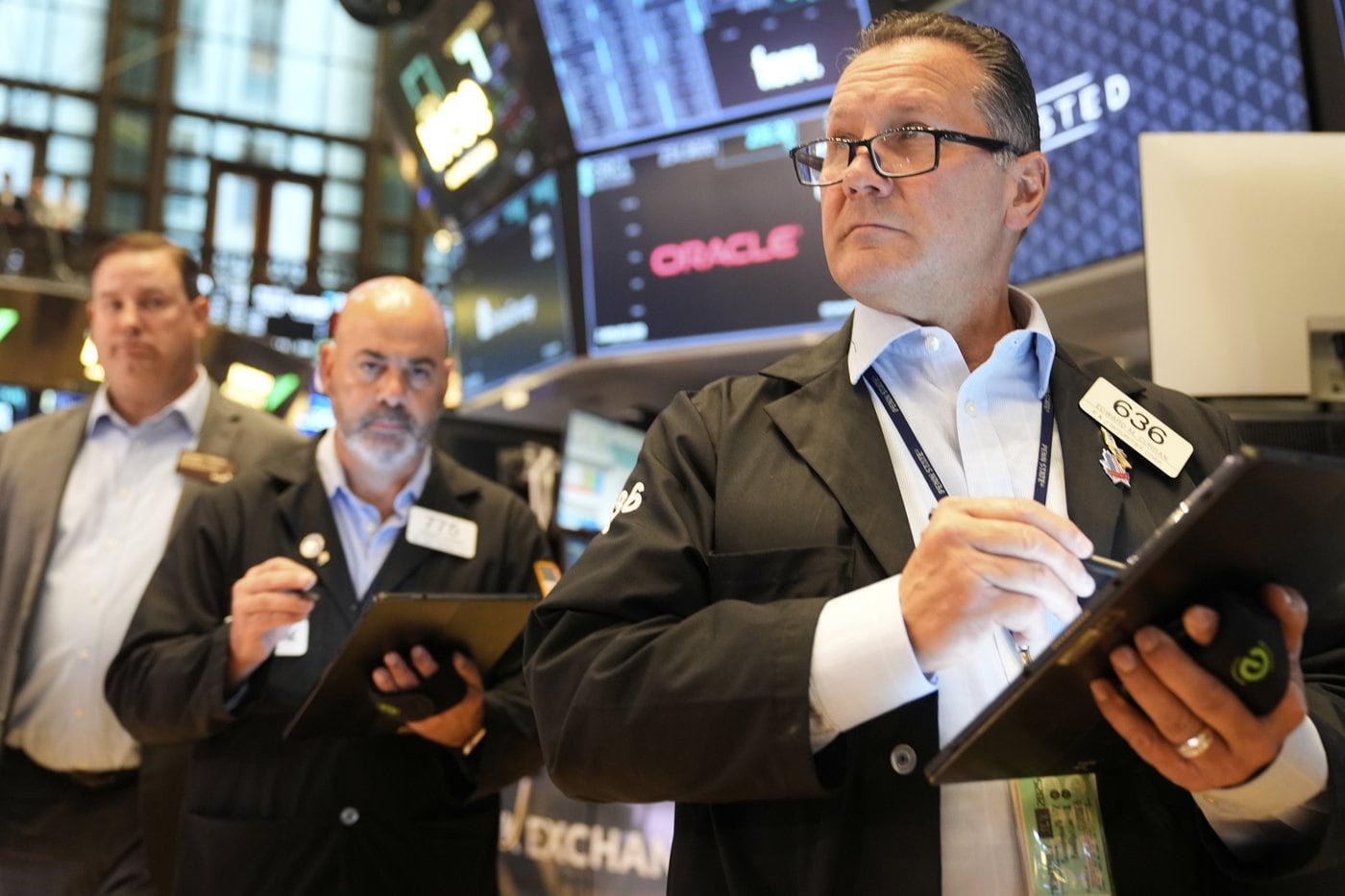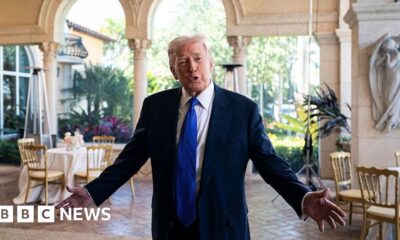Business
Asian Markets Rise as Trump Discusses Firing Fed Chair Powell

Asian shares mostly climbed on Thursday following comments from U.S. President Donald Trump regarding the potential dismissal of Jerome Powell, the chair of the Federal Reserve. Trump indicated he had “talked about the concept of firing” Powell, although he suggested it was unlikely, which resulted in a mixed response from U.S. futures.
Market Reactions to Trump’s Comments
Global stock markets showed a general uptick, with the DAX in Germany rising by 0.8% to reach 24,209.08. Similarly, France’s CAC 40 increased by 0.8% to 7,785.91, while the UK’s FTSE 100 saw a 0.4% rise, closing at 8,960.99. In the U.S., futures for the S&P 500 gained 0.1%, while those for the Dow Jones Industrial Average dipped by 0.1%.
Asian markets mirrored this trend, with Japan’s Nikkei 225 rising 0.6% to 39,901.19. However, the Hang Seng in Hong Kong fluctuated, ultimately closing down by 0.1% at 24,498.95. In contrast, the Shanghai Composite index gained 0.4% to 3,516.83, while Australia’s S&P/ASX 200 advanced 0.9% to 8,639.00. The South Korean Kospi climbed 0.2% to 3,192.29, though India’s Sensex fell by 0.3%. Bangkok’s SET index surged by 3.3%, buoyed by strong performances from major companies.
Implications of Potential Changes at the Fed
Trump’s remarks stirred the markets, with immediate concerns regarding the implications of firing Powell. While lower interest rates might benefit Wall Street, they could also undermine the Federal Reserve’s ability to manage inflation effectively. Powell has maintained a cautious approach, awaiting further data on the economic impacts of Trump’s tariffs before making any adjustments to interest rates.
“I don’t rule out anything, but I think it’s highly unlikely,” Trump stated when asked about the prospect of firing Powell.
On the economic front, Trump has expressed discontent regarding the Fed’s current stance on interest rates, which he believes should have been cut earlier in the year. This adjustment would facilitate easier borrowing for U.S. households and businesses, potentially spurring economic growth. The administration has also approved extensive tax cuts, which are expected to increase government borrowing significantly.
In the context of inflation, recent reports indicate a slowdown to 2.3% at the wholesale level last month, surpassing economists’ expectations. Nevertheless, another report highlighted that Trump’s tariffs are contributing to rising prices for U.S. consumers on various imported goods.
Trump’s tariffs continue to create ripples across global financial markets. For instance, ASML, a major supplier of chipmaking equipment based in the Netherlands, has cautioned that it cannot guarantee growth for the upcoming year, despite achieving a projected 15% increase in sales for 2025. Following this announcement, ASML’s shares in the U.S. dropped by 8.3%.
In commodity markets, U.S. benchmark crude oil rose by 13 cents to reach $66.51 per barrel, while Brent crude, the international standard, decreased by 10 cents to $68.40 per barrel. Currency fluctuations included a rise in the U.S. dollar to 148.59 Japanese yen, up from 147.89 yen, while the euro slipped to $1.1601 from $1.1641.
As global investors navigate the uncertainties surrounding U.S. monetary policy and its broader implications, the markets remain on alert for any further developments regarding the Federal Reserve and its leadership.
-

 Politics3 months ago
Politics3 months agoSecwepemc First Nation Seeks Aboriginal Title Over Kamloops Area
-

 World7 months ago
World7 months agoScientists Unearth Ancient Antarctic Ice to Unlock Climate Secrets
-

 Top Stories1 month ago
Top Stories1 month agoUrgent Fire Erupts at Salvation Army on Christmas Evening
-

 Sports1 month ago
Sports1 month agoCanadian Curler E.J. Harnden Announces Retirement from Competition
-

 Lifestyle5 months ago
Lifestyle5 months agoManitoba’s Burger Champion Shines Again Amid Dining Innovations
-

 Top Stories2 months ago
Top Stories2 months agoFatal Crash on Highway 11 Claims Three Lives, Major Closure Ongoing
-

 Entertainment7 months ago
Entertainment7 months agoTrump and McCormick to Announce $70 Billion Energy Investments
-

 Science7 months ago
Science7 months agoFour Astronauts Return to Earth After International Space Station Mission
-

 Lifestyle7 months ago
Lifestyle7 months agoTransLink Launches Food Truck Program to Boost Revenue in Vancouver
-

 Technology5 months ago
Technology5 months agoApple Notes Enhances Functionality with Markdown Support in macOS 26
-

 Top Stories1 month ago
Top Stories1 month agoBlue Jays Sign Kazuma Okamoto: Impact on Bo Bichette’s Future
-

 Top Stories2 months ago
Top Stories2 months agoNHL Teams Inquire About Marc-André Fleury’s Potential Return





















